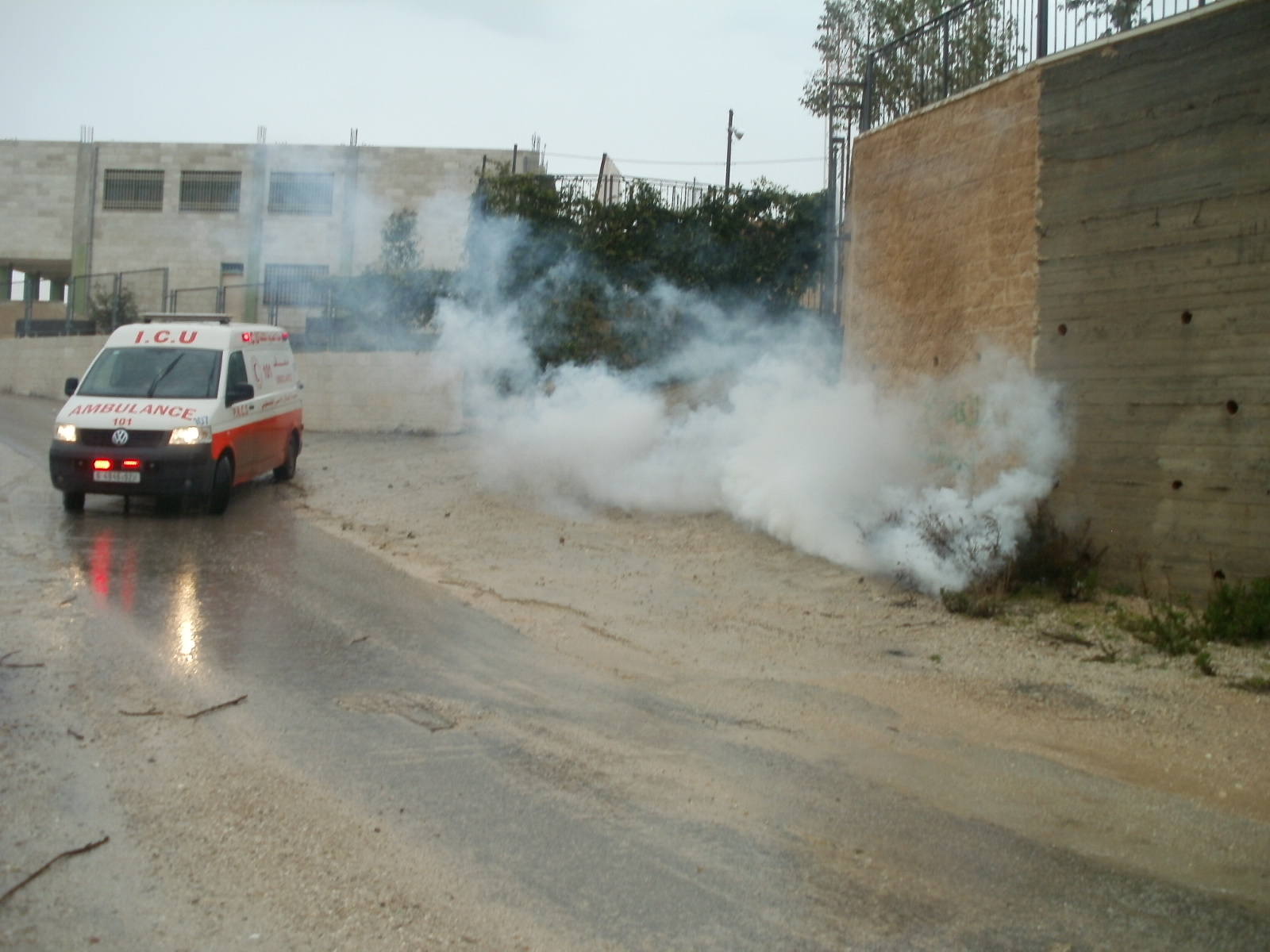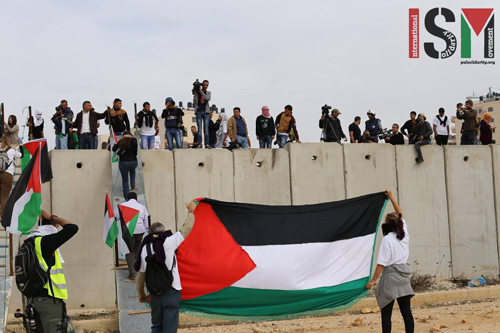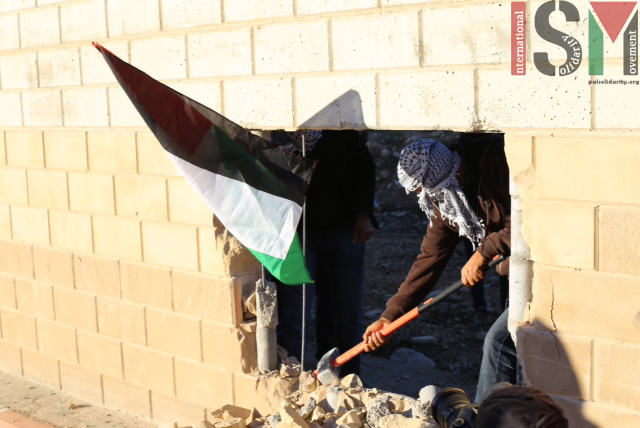Tag: Apartheid Wall
-
Violence in Ni’lin village: Repression, tear gas and arrests
19th January 2015 | International Solidarity Movement, Ramallah team | Ni’lin, Occupied Palestine The soldiers surrounding Ni’lin did not wait; they began firing tear gas as soon as the villagers walked down into their olive groves. Those who had braved the cold, rainy weather to attend Ni’lin’s weekly Friday demonstration were forced to retreat, running choking from…
-
VIDEO: Palestinian and international activists cross makeshift bridges over the separation wall
14th November 2014 | International Solidarity Movement | Ramallah, Occupied Palestine Friday morning around 50 Palestinian and international activists used makeshift bridges to cross the Apartheid wall between Qalandiya and Northern Jerusalem. This non-violent direct action was in response to the restrictions Israel had placed on Palestinian worshippers wishing to access Al-Aqsa Mosque in the past months. Activists scaled the…
-
Palestinian activists destroy section of Apartheid wall
9th November 2014 | International Solidarity Movement, Ramallah Team | Beit Hanina, Occupied Palestine Yesterday, to mark the anniversary of the fall of the Berlin wall today, a direct action took place in Beit Hanina, a neighbourhood in Jerusalem. ISM and international volunteers supported the Palestinian-led action, which involved demolishing a section of the Apartheid wall using…



